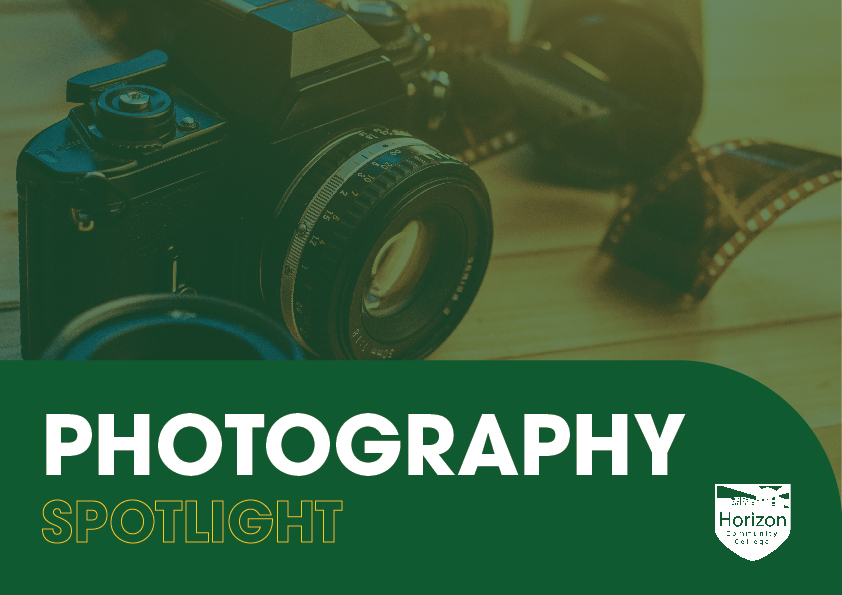CURRICULUM
Photography
PHOTOGRAPHY Curriculum Intent
Photography is a vital part of children’s education; It provides them with a visual language through which they can share and express their individual creativity and explore the many ways in which artists from different times and cultures respond to the world around them.
Our Curriculum will equip students with the practical skills in drawing, painting, printmaking, photography, sculpture and mixed media but will also provoke curiosity, expect ambition, develop studentship and provide challenge and support for all our learners.
The Photography Curriculum at Horizon
Click here to see where Photography can take you
Key STRANDS
Research
We find out about photographers, artists and styles of Art and the factors that have shaped Art movements such as war, new inventions, and technologies. We learn how to identify how artists/photographers have created their work and what techniques have been used.
We learn how to ‘read’ a piece of Art, understanding what the artist is trying to tell us and describing how we feel about it. We analyse works of art using the Formal Elements. These are line, tone, form, colour, pattern, texture, scale, composition. They are the building blocks of Art and we learn how to use them in many ways over the curriculum through our many exciting projects, students get to develop their understanding and expertise.
Analysis
Plan
We plan photoshoots taking inspiration from the artists that we have researched and analysed. We consider the formal elements as well as the lighting, positioning and angles.
We learn how to use the SLR cameras to take photos of objects within the classroom and we use the school building and grounds when we are working on our Built Environment project.
Photoshoot
Experiment
We teach your child how to use Photoshop to enhance photographs and also create new, individual and creative developments in the style of a variety of artists and photographers.
It is important to look back at the work that we have been inspired by and compare our developments to the work of the artist to show understanding of the work, formal elements and the curriculum.
Compare
Improve
We teach your child how to analyse their own work in comparison to others and further improve their developments looking again at the formal elements to enhance their work. The cycle continues to rotate throughout each of the coursework projects, both in Y10 and in Y11.
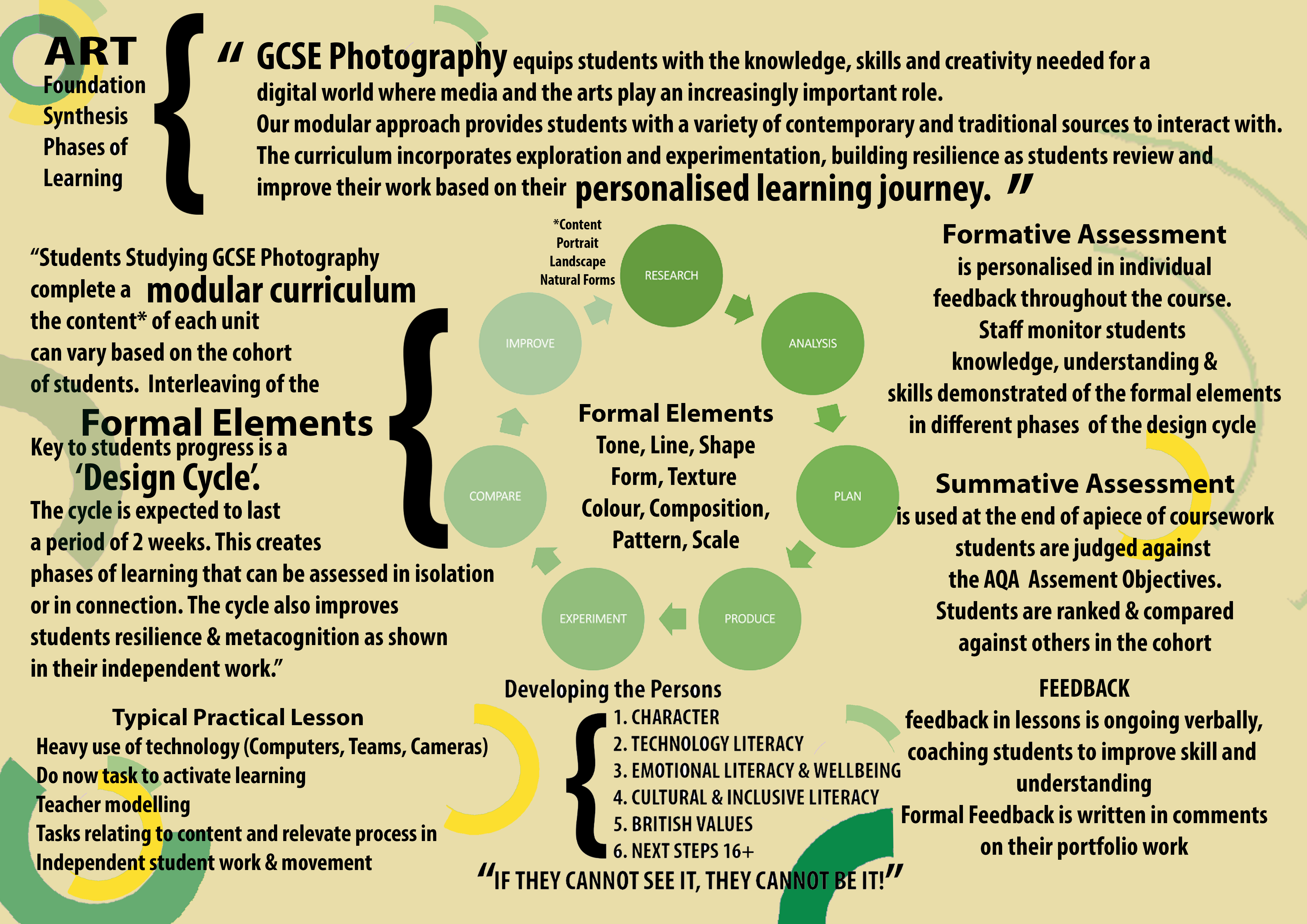
Year 10
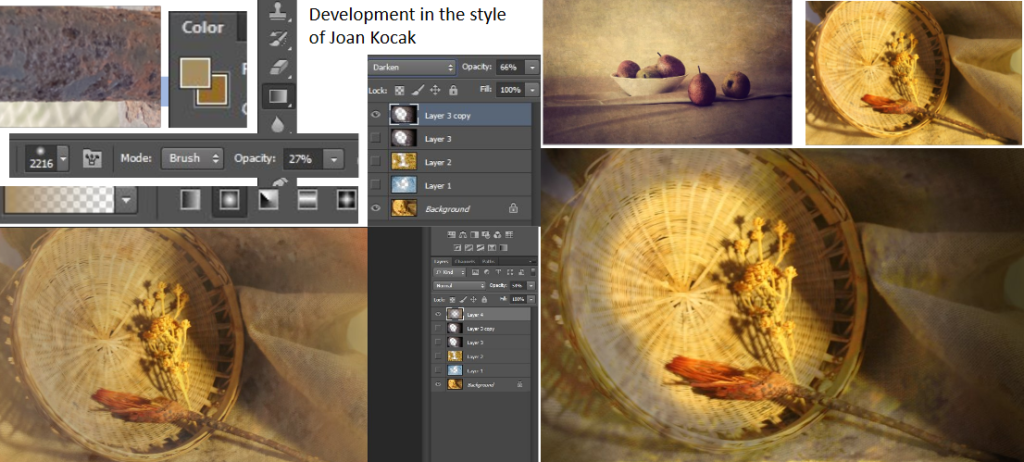
Natural Forms
Students will complete a set of two week modules on individual artists, themes and techniques to explore an introduction to digital photography under the heading Natural Forms’. Traditional photographers studied include Harold Feinstein, Georgia O’Keefe to contemporary artists like Andy Goldsworthy.
The two week modules will allow students to build skills in techniques relating to formal elements in Art, specific techniques in Photoshop and in Digital Workflow. Techniques in Photoshop and Digital Work Flow are cyclic allowing students to demonstrate skills within different learning experiences. Tutoring by staff will allow improvement with techniques.
Students are taught in a photography studio where they each have hi-spec computer and access to digital photography equipment. The lesson is set and taught using Teams and Office 365. Modelling is recorded so students have a bank of recorded demonstrations they can access at any time. Digital software used in lessons in focused on Adobe Photoshop, but we also use Photopea.com which is like Photoshop but is free to use and easily accessible at home on tablet, mobile phone and pc or mac.
Students will mainly be based in the classroom when taking photographs this term.
Home-learning is to take photographs of natural forms like bark, grass, leaves, flowers and is set each week to complete a minimum of 10 photos.
Students need to learn how to email their work to their college account or use Google Photos/ i-Cloud or some other suitable online storage. Mobile Phones are not allowed to be on or out in lessons.
Skills -
Students demonstrate the proficiency of their skills based on technique taught and personal interest and prior learning. The curriculum has been planned to offer experiences that will allow students to demonstrate a range of skills. Many processes they learn will be repeated, this will allow each child to retain and recall skills learnt quickly.
Other key skills will be in presentation, organisation, digital workflow
Develop skills as Global Citizens- Responsible, respectful and active citizens who are able to play their part and become actively involved in public life as adults.

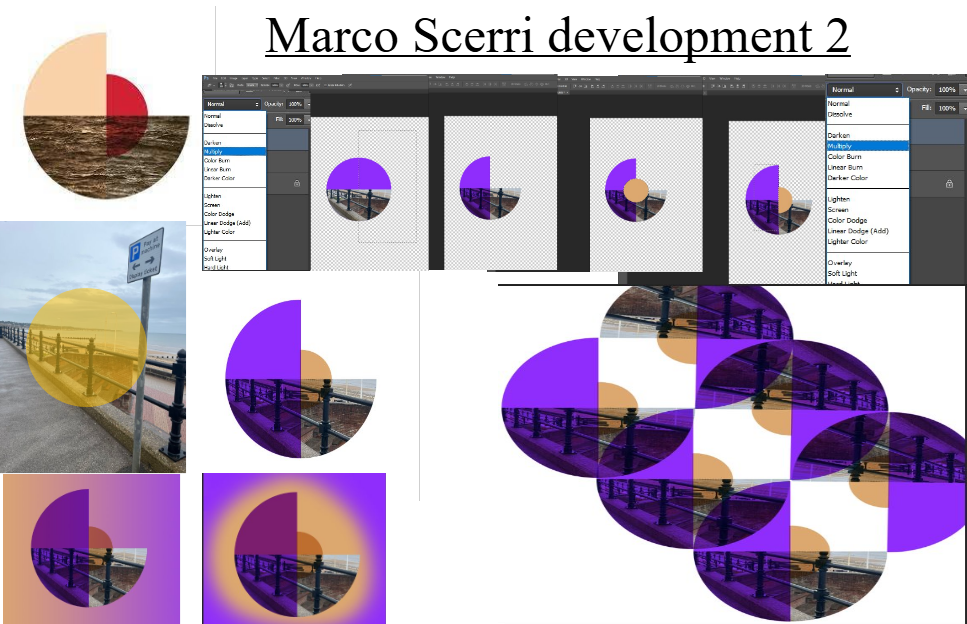
Term 2
Again, students will complete a set of two-week modules on individual artists, themes and techniques to explore an introduction to digital photography under the heading ‘Natural Forms and Food’. Traditional photographers studied include Harold Feinstein, Georgia O’keefe and Harold Feinstein, also contemporary artists like Andy Goldsworthy.
Homelearning is to take photographs of Natural Forms and Food and is set each week to complete a minimum of 15 photos. Students will have learnt the best way for them to manage their photos, so they are available in college.
This term see students transition from one theme to another researching artists who blend techniques used in both themes. We develop work inspired by Tracci Griffin ‘symmetry’
Skills -
Students demonstrate the proficiency of their skills based on technique taught and personal interest and prior learning. The curriculum has been planned to offer experiences that will allow students to demonstrate a range of skills. Many processes they learn will be repeated, this will allow each child to retain and recall skills learnt quickly.
Other key skills will be in presentation, organisation, digital workflow
Key Skill relate to AQA Assessment Objectives
First, Students develop ideas through investigations demonstrating critical understanding of sources (A01:)
Next, Students refine work by exploring ideas, selecting and experimenting with appropriate media , materials , techniques and processes. (A02)
Also Students can record ideas, observations and insights relevant to intentions as work progresses (A03)
Finally, Students can present a personal and meaningful response that realises intentions and demonstrates understanding of visual language (A04 .

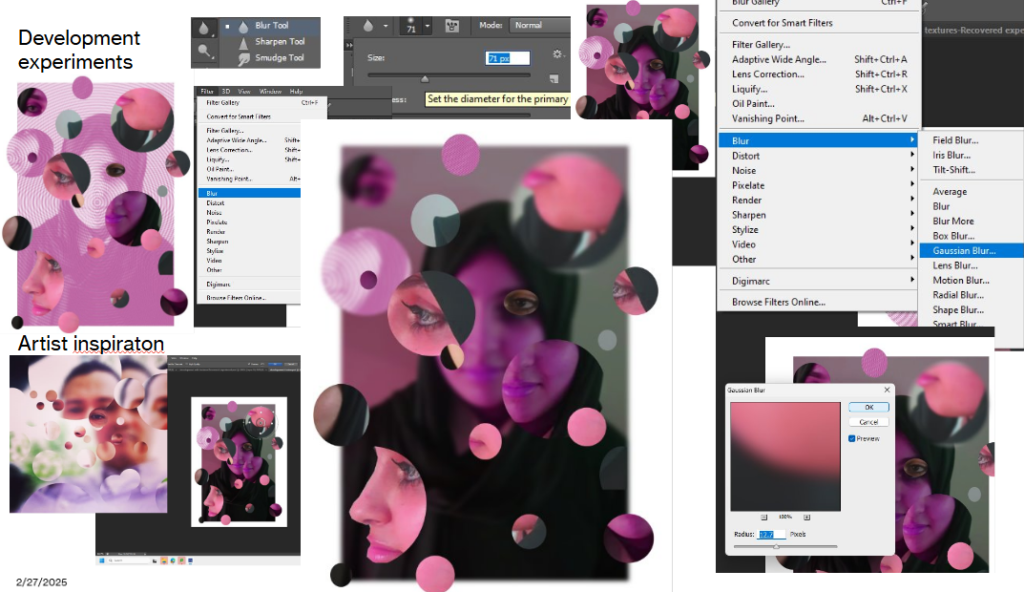
Environment
Students will continue with a modular approach to learning, themes and techniques explored will be based on the theme ‘The Environment’. Contemporary artist researched include Alexy Bogolepov, Laurent Minguet, Cristiana Couceira.
Techniques taught will be slightly more advanced, building on prior learning. Previous learning and skills will be applied in a different context embedding further retrieval.
Homelearning will include photography of buildings, streets, signs, landscapes and is set each week to complete a minimum of 15 photos. Students will have learnt the best way for them to manage their photos, so they are available in college.
Skills
Key Skill relate to AQA Assessment Objectives
First, Students develop ideas through investigations demonstrating critical understanding of sources (A01:)
Next, Students refine work by exploring ideas, selecting and experimenting with appropriate media , materials , techniques and processes. (A02)
Also Students can record ideas, observations and insights relevant to intentions as work progresses (A03)
Finally, Students can present a personal and meaningful response that realises intentions and demonstrates understanding of visual language (A04 to intentions as work progresses
A04 : Present a personal and meaningful response that realises intentions and demonstrates understanding of visual language

Year 11
Photography
Messages
This term builds on previous techniques learnt but will focus on the theme of ‘Messages’. The focus of the work is to convey subtle and obvious meaning on current affairs to the audience. Messages as a project will run for 6 weeks. The weeks before and after half term will focus on the mock exam.
Skills -
Students will demonstrate skills relevant to the AQA Assessment Objectives. They will also learn techniques of how to approach an exam question
Term 2
External question papers will arrive 1st January of year 11 and will consist of 7 possible starting points or themes. By this stage students will have a clear picture of their preferred subject matter and favoured techniques and materials and be able to make a considered choice of starting points based on this.
